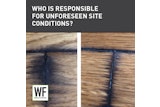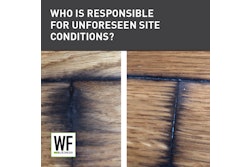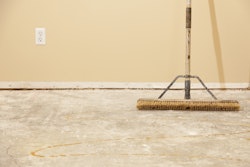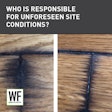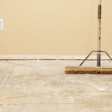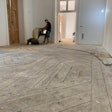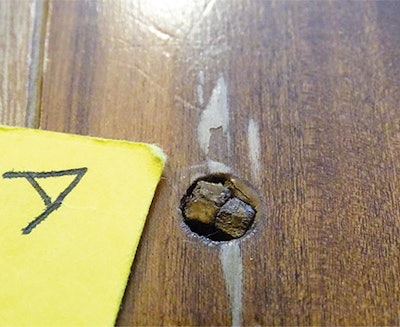
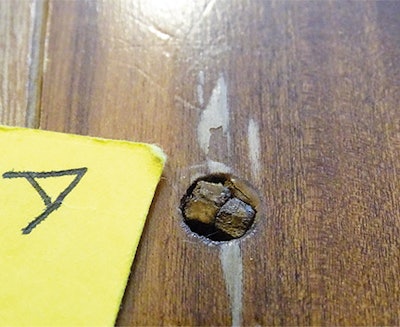
The Homeowner's Issue
In June, the homeowner selected a solid prefinished exotic wood floor from the retailer and had it installed by a professional. In January, the homeowner noticed the finish beginning to chip and peel in several locations and called for an inspection.
Roy: The Inspector's Observations
The inspection revealed multiple perfectly round holes about 3/8 inch in diameter that had been plugged with pieces of wood. I discovered the pieces of wood could move freely up and down within the hole. It appeared the manufacturer must have attempted to replace character in the flooring by drilling completely through the areas that had character marks, filling the drill holes with small scrap pieces of wood and applying wood filler over the top to hide the plugs. What worked in summer did not work in winter, when moisture was low. The wood flooring began to shrink, which caused the holes in the plank to grow larger. Since the plugs were made of wood, they shrunk, too, and pulled away from the wall of the expanded hole. Now the plugs could move, and the movement, I concluded, was what broke up the floor finish.
Blake: The Attorney's Analysis
Provided the manufacturer's installation guidelines were followed, this is a pretty clear case of a product defect. The question of who must pay to correct it, though, may not be so clear. Virtually all manufacturers include language in their warranties limiting their liability to product replacement and disclaiming responsibility for the labor to tear out and replace the product. Under the Uniform Commercial Code, this type of disclaimer is generally enforceable, even if the installer or homeowner were not actually aware of it. As long as the warranty is published and available for the public to review, it will generally be binding. There is also a strong chance the homeowner will not want replacement product since, in this case, the product design is defective; it was not simply a one-time occurrence. In such event, it is likely the manufacturer would be on the hook to refund the purchase price. Assuming the manufacturer disclaimed labor costs, the cost of the labor will fall on either the installer or the homeowner. The responsible party will depend on the language of the installer's contract and whether the contract (wisely) included similar language disclaiming liability for labor costs due to defective materials. If it did, then in this game of musical chairs the homeowner will be left without a place to sit.
RELATED: Does This Retailer Have to Make Good on His Verbal Promise?










